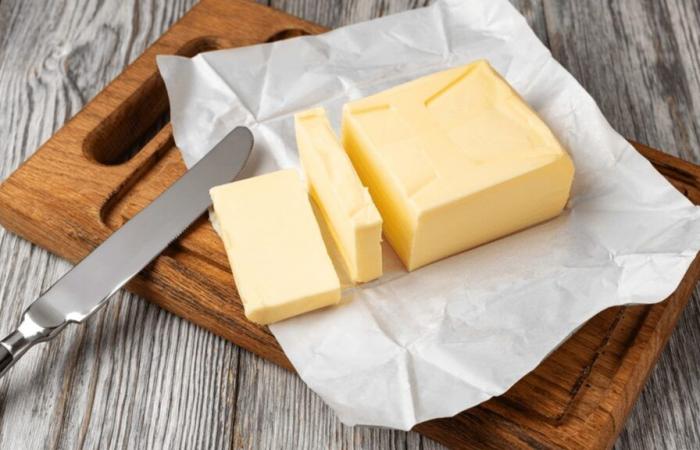One of the first reflexes when you suffer from hypertension is to carefully monitor your diet. Is butter one of the foods to avoid? The response from Luce Jean-Baptiste, dietitian nutritionist.
Written on 14/01/2025
Allodocteurs – Newen Digital
In France, one in three adults is affected by high blood pressure, according to the National Institute of Health and Medical Research (Inserm). That is several million people, only half of whom are aware of suffering from this cardiovascular disease, the most common in France.
With age, the risk of developing cardiovascular disease increases drastically. Particularly with regard to high blood pressure. The risk then reaches “40% of people at 65 and 90% at 85“, informs the Health Insurance platform, Ameli.fr.
What are the causes of hypertension?
Besides age, other factors favor the appearance of high blood pressure. The risk of being hypertensive is, for example, higher.if any family members have had or have high blood pressure“, continues Ameli.fr. “The West Indian population and people from South Asia are more likely to develop high blood pressure“, adds the health authority.
Diet also plays an important role in the prevention of cardiovascular diseases. A healthy and balanced diet, coupled with regular physical activity, slows the development of hypertension. “A diet too rich in salt promotes hypertension“, confirms Health Insurance. However, salt has become omnipresent in our diet rich in ultra-processed foods. Excessive consumption of alcohol or, more surprisingly, liquorice, are also factors favoring the development of hypertension. What about butter? We asked Luce Jean-Baptiste, dietician-nutritionist.
-Butter and hypertension: a forbidden marriage?
“When you suffer from hypertension, it is entirely possible to treat yourself by respecting the recommended dose of butter, i.e. around 15 grams per day.“, says Luce Jean-Baptiste. Which represents approximately a tablespoon or a medium-sized knob of butter. “In reality, the consumption of butter is not a risk factor for high blood pressure, provided that it is soft and not salty.“, she warns.
Consumption of butter, with its content of approximately 80% fat, the majority of which is saturated fat, is often associated with an increase in LDL cholesterol, also called “bad cholesterol”. However, this parameter is linked to an increased risk of developing hypertension. “The direct link between butter consumption and hypertension is not so obvious, however.“, explains Luce Jean-Baptiste. “Consume butter can increase LDL cholesterol levels, which itself is a risk factor for hypertension. But if you already suffer from hypertension, eating butter is not contraindicated.“
Also read: Can you eat eggs when you have high blood pressure?
Hypertension: stop with salted butter!
In contrast, in the case of hypertension, “it is imperative to ban salted butter or semi-salted butter from your diet“, underlines the specialist. “The diet of the French is already too rich in salt: there is no point in adding it!“In fact, the World Health Organization (WHO) recommends not exceeding 5 g of salt per day,”while in France, the average consumption is around 9 to 10 g“, alerts Luce Jean-Baptiste.
“You need to know how to balance your diet to get the most out of each food.“, pleads the dietitian nutritionist. “It is better not to prohibit, but to adapt. For example, butter stands out particularly for its richness in vitamin A, which is essential for the regulation and good health of the immune system, as well as for the growth of bones and tissues.“So don’t hesitate to include butter, in reasonable quantities, in a varied and balanced diet to benefit from its benefits, without fearing for your cardiovascular health.







